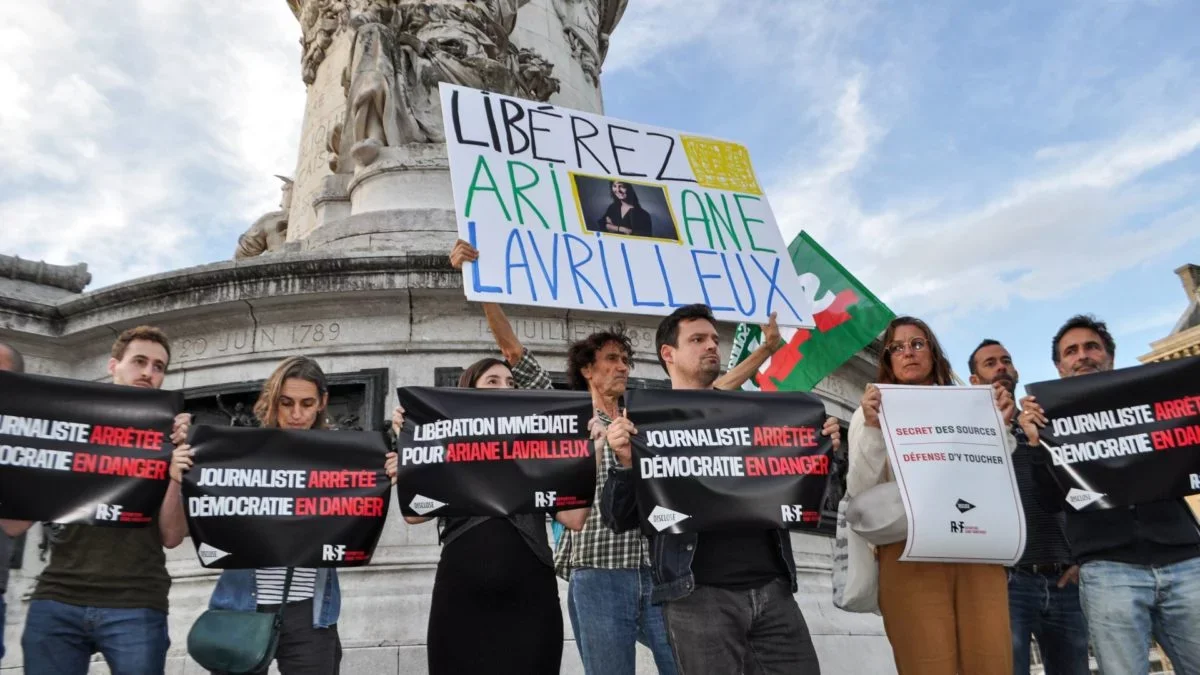France arrests journalist who reported on leaked classified documents
Photo: Robin Grassi / Reporters Without Borders, September 20, 2023
French investigative journalist Ariane Lavrilleux, whose 2021 reporting for the Disclose website detailed Egypt's use of French intelligence in a number of attacks on civilians, was arrested at her home early in the morning of Tuesday 19 February. Lavrilleux's home was searched while she was taken into custody and questioned, reportedly by police from France's internal intelligence service DGSI.
Responding to Lavrilleux's arrest, Disclose stated that the French authorities' aim was to unmask the sources who had brought Egypt's Operation Sirli to light. In July 2022, the Paris prosecutor's office opened an investigation into a possible disclosure of national defence information that was handed over to DGSI, which argues that the reporting could have exposed a "protected agent." The Disclose statement said:
"The aim of this latest episode of unacceptable intimidation of Disclose journalists is clear: to identify our sources who helped reveal the Sirli military operation in Egypt. In November 2021, Disclose relied on several hundred “top secret” documents to unveil a campaign of arbitrary executions orchestrated by the Egyptian dictatorship of Marshal Al-Sissi, with the complicity of the French state."
Disclose's reporting showed that French intelligence had been used in 19 separate bombings between 2016 and 2018, targeting smugglers operating along Egpyt's border with Libya. These resulted in the deaths of hundreds of civilians. Disclose documented how officials within the French government were aware of the purposes to which the information it was sharing was put, and even expressed disquiet to their Egyptian counterparts, but nonetheless allowed the operation to continue.
Virginie Marquet, the lawyer acting for both Lavrilleux and Disclose, condemned the arrest.
“I am appalled and worried about the escalation in attacks on the freedom to inform and the coercive measures taken against the Disclose journalist. This search risks seriously undermining the confidentiality of journalists’ sources.”
Not surprisingly, the arrest of Ariane Lavrilleux has also been condemned by a number of human rights and press freedom groups, including Amnesty, RSF (who noted similar recent incidents in France), IPI and the CPJ. Like them, Blueprint is acutely aware of the need for source protection and confidentiality, particularly in the sensitive areas of defence and national security.
In recent years, the environment for this reporting has been deteriorating in many countries, among them Australia, the UK and the US. The most acute cost of this kind of intimidation may be the one it is most difficult to quantify: the sources who decide not to come forward and the stories that therefore never come to public attention.

